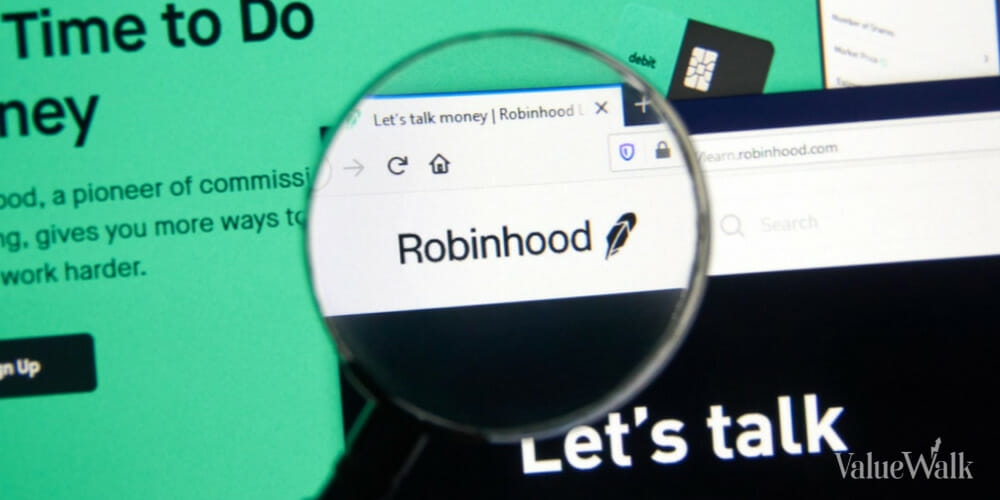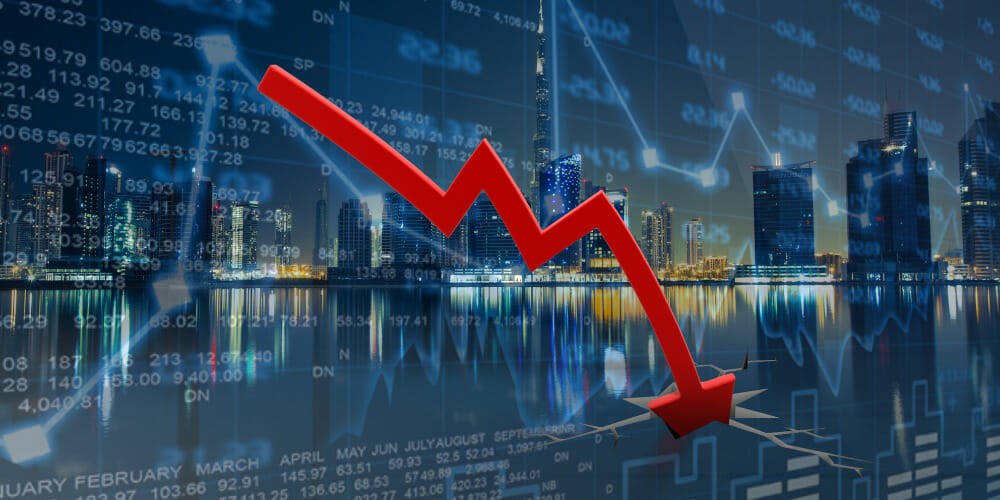While juggling in the stock market, did you come across Robinhood? If so, you might already know that there are some stocks that it doesn’t support. But why is it so?
Robinhood typically does not support stocks with low liquidity or trade over-the-counter (OTC). Additionally, it may take longer for new stock to become available on Robinhood since the company must first review the company and its financials before it can be added. Lastly, foreign stocks may not be supported due to laws and regulations that limit their availability in certain countries.
There is much more you should know about Robinhood and its unsupported stocks. So, in this article, we will unfold the truth behind unsupported stocks by Robinhood. Keep reading!
What is Robinhood?
Robinhood is an investment app allowing people to buy and sell stocks, ETFs, options, and cryptocurrency without paying commissions or fees. It is designed to make investing more accessible and easier for everyone, regardless of their financial background. The app also provides real-time market data and research tools so users can stay up-to-date on all the latest stock news, trends, and analysis.
With Robinhood, users can manage multiple portfolios from one platform with only a few taps on the screen. In addition to stocks, users can also access different types of investments, such as futures contracts, options, and even cryptocurrencies, through its partner exchanges.
Robinhood offers cash management accounts with no minimum balance and competitive interest rates. With its user-friendly interface, simple signup process, and lack of fees, Whether you’re a beginner or experienced investor, Robinhood is the perfect platform to kick-start your investing journey without worrying about the complexities of traditional trading services.
How Does it Work?
Robinhood makes it easy for anyone to invest in the stock market with minimal risk. It provides access to over 5,000 U.S. stocks and ETFs (exchange-traded funds). The app also offers a Robinhood Instant feature, allowing users to trade stocks immediately after placing the order.
The app has several features that make investing more accessible and more convenient. For example, it includes a news feed with timely market updates so that you can stay informed of any changes in the stock market.
It also has educational resources to help new investors learn the stock market investing basics. Robinhood also offers a personalized portfolio feature that allows you to track your investments and make smarter decisions about which stocks to buy or sell.
List of Unsupported Stocks on Robinhood
Robinhood does not provide access to all stocks, and there are specific securities that the platform does not support. These stocks can be divided into two categories: stocks in bankruptcy and foreign stocks.
Bankruptcy:
Stocks in bankruptcy refer to companies whose assets have been liquidated by court order, and the company’s stock is no longer traded publicly. These stocks are typically listed on the Pink Sheets or OTC markets, and Robinhood does not offer trading access to these types of stocks.
Foreign Stock:
Foreign stocks refer to stocks that are listed on stock exchanges outside of the United States. Unfortunately, Robinhood currently does not support any foreign stocks; however, they do plan to add international investing options in the future.
Reasons Why Stocks Got Unsupported in Robinhood
The Robinhood stock app is becoming increasingly popular as people look for an easy and convenient way to buy and sell stocks. However, some stocks have become unsupported on the platform in recent months. Here are some possible reasons why this might happen:
Trading Pause
Stocks got unsupported in Robinhood because of their paused trading or trading halt feature. Trading pause usually runs about one hour, but sometimes it can be longer than the reported time. This feature limits the ability of users to place trades on certain stocks when the price fluctuates too quickly or dramatically. The rationale behind the pause is to protect users from excessive losses due to sudden and unexpected price movements.
Furthermore, it prevents users from making decisions based on incomplete information or misunderstanding underlying asset values. Trading Pause provides an extra layer of protection for Robinhood users, making the stock trading platform more secure and reliable.
Stock Delisting
Stock Delisting is also one of the reasons why Robinhood might not support a stock. A delisting occurs when a company or its stocks have been removed from a public exchange. This can be due to various reasons, such as non-compliance with listing requirements, bankruptcy, mergers and acquisitions, inadequate public float, and fraud. Once a stock has been delisted, it can no longer be traded in public exchanges and must find alternate places to trade.
In the case of Robinhood, when a company or its stocks become delisted from a major exchange, Robinhood removes them from its app’s lineup. This process ensures that only legitimate companies remain supported in the platform. Additionally, it can help protect users from potential scams or fraudulent schemes associated with delisted companies.
If your stock in Robinhood got delisted, you could then sell it in the stock market, but this will not make you able to purchase any additional stock from the market.
Corporate Actions
Robinhood’s decision to limit trading on certain stocks was driven by a number of corporate actions that have taken place recently. The merger between GameStop and Chewy, the acquisition of AMC Theaters by Mudrick Capital Management, and the surge in interest for silver by retail investors are a few types of corporate actions.
The particular stocks Robinhood chose to restrict trading on saw a massive price surge due to the influx of investors. This created an unprecedented situation where some stocks traded at prices much higher than their underlying value. Robinhood felt it was necessary to limit individual investor activity as a precautionary measure.
The market fluctuation caused by this flurry of corporate activities also put Robinhood under pressure to ensure that its customers were not exposed to too much risk. Robinhood limited trading on these stocks to protect investors, prevent market manipulation, and maintain market integrity in the face of an influx of previously inexperienced investors.
Stocks Under Major Investigation
When major investigations are announced, stock prices can drop if investors fear the study’s outcome. It can lead to a massive sell-off as traders attempt to minimize losses by cutting ties with the company.
To protect its customers from significant losses, Robinhood may restrict trading on certain stocks when a major investigation is launched into a company. It helps protect traders from making trades they may regret in the future and prevent possible market manipulation.
Robinhood may also restrict stocks during a significant investigation to ensure enough liquidity to support any potential trading volume. By limiting the amount of buying and selling activity, Robinhood can help protect individual investors who are otherwise at risk of being taken advantage of in a volatile market.
In some cases, Robinhood may even restrict all trading on certain stocks until the investigation is complete and the outcome is known. Ultimately, this measure helps to protect traders from making ill-advised trades while helping to ensure that markets remain fair and orderly.
Special Cases
In some exceptional cases, stocks on Robinhood can become unsupported. This could be due to various reasons, such as restrictions imposed by the Securities and Exchange Commission (SEC) or changes in market conditions. For example, if a company is looking to delist its shares from meaningful exchanges, Robinhood may decide to stop offering it as an investment option.
Additionally, Robinhood may temporarily suspend trading for certain stocks if the markets are volatile until liquidity stabilizes. Finally, the SEC has strict regulations about which stocks can be traded on public exchanges, and some of these rules affect what investments Robinhood can offer.
Robinhood will notify customers via email and in-app notices whenever a stock becomes unsupported. Check notifications regularly to stay updated on any changes affecting your investments.
FAQs
Why Can’t I Withdraw All my Money from Robinhood?
Robinhood only allows its users to withdraw some of their money due to the account restriction run. This happens because of bank account transactions or a negative balance the user had. These situations declare a suspicion tag on the user’s account.
Does Robinhood Affect Credit Score?
Using a Robinhood account doesn’t directly affect your credit score – because no direct lending is involved. Moreover, the Robinhood stock app doesn’t run a credit check on its user, especially when you have an account.
Why Do People Still Use Robinhood?
- It has a user-friendly design and intuitive navigation.
- Robinhood offers free trades with stocks, options, and ETFs with no minimum balance requirement.
- It also allows users to invest in fractional shares for as little as $1, which can be particularly useful for those with limited disposable income.
- Robinhood also has a wide range of stock market research and analysis tools, which can be used to help users make more informed decisions.
- The app offers real-time news updates so that investors can stay up-to-date with the latest developments in the market.
Do I Pay Taxes on Robinhood if I Don’t Withdraw?
You can only pay taxes on Robinhood if you withdraw. All profits from investing in securities such as stocks, ETFs, and options are capital gains. Capital gains are not taxed when the profits are kept within the account and do not exceed your annual contribution limit.
Any earnings you make over this limit will be taxed at different rates, so make sure to plan ahead and follow the guidelines set by your state or federal government. If you do withdraw money from Robinhood, it may be subject to taxes depending on your income level and other factors. Make sure to consult a financial advisor for more information about the taxation of your investments.
Conclusion
So, this is all about the unsupported stocks by Robinhood. After all this research, Robinhood protects the user from scams and other cases while not giving access to every stock. However, withdrawing your money can be risky, so we suggest you leave little behind.













